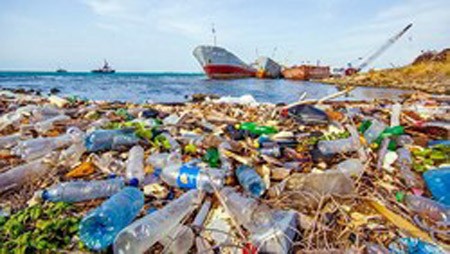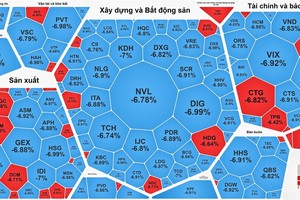
In the last 10 years, despite witnessing a 15 – 20 percent growth annually, the Vietnamese plastic industry has imported up to 80 percent material for manufacturing.
According to Mr. Ho Duc Lam, Chairman of the Vietnam Plastic Association, this result showed that Vietnam can only create end-products and has not paid much attention to the development of plastic recycling. This leads to a heavy dependence on imported material.
Therefore, Mr. Lam suggested that the government should better foster plastic recycling activities among domestic businesses, while encouraging citizens to smartly use this material, to properly categorize their plastic waste. This, in turn, greatly aids the recycling process later.
Associate Professor Dr. Nguyen The Chinh, Head of the Institute of Strategy and Policy on Natural Resources and Environment, said that in order to reduce the amount of plastic waste in the community, especially single-use plastic bags, the government must issue the related laws on strictly managing and monitoring hardly dissolvable plastic waste. It should introduce a suitable mechanism to limit the use of single-use bags while boosting the implementation of alternative methods.
At the moment, certain environmentally friendly plastic bags are already manufactured in Vietnam, yet because of their high price, they are not favorable. This calls for a widespread propaganda campaign in the society and a governmental subsidy in a certain period of time, in the hope that citizens are well aware of the environmental harm of single-use plastic bags and form the habit of green consumption.
Deputy Minister of Natural Resources and Environment Vo Tuan Nhan commented that the rate of rubbish classification in Vietnam is too low, as this action only happens when there is a need from waste collectors or certain factories that normally possess the recycling phase.
However, since the number of plastic recycling plants is neither high, nor do they concentrate in certain places with high-tech assembly lines, they are not very effective or efficient.
Also, because of using outdated technologies in renewing plastic, these factories often release much exhausted fume into the atmosphere, creating even more water, soil, and air pollution.
Deputy Minister Nhan shared that Vietnam prioritize waste treatment processes, particularly plastic recycling, in choosing proper environment protection solutions. It seems that plastic recycling businesses in the nation are facing both opportunities and challenges. They, on the one hand, are well supported by various policies from the government and have high demand from plastic manufacturers. On the other hand, they must try to meet all requirements regarding environmental issues, thus an urge to invest more on state-of-the-art technologies and machinery.
The government has already introduced many advantageous policies to help plastic recycling companies to obtain cutting edge machines to perform the task. This is supposed to reduce the amount of plastic waste into the environment and create more material for the plastic industry in the country, limiting the need to import from other nations. If properly implemented, it is predicted that the recycling process can answer 50 percent of the total requirement of the plastic industry.
























